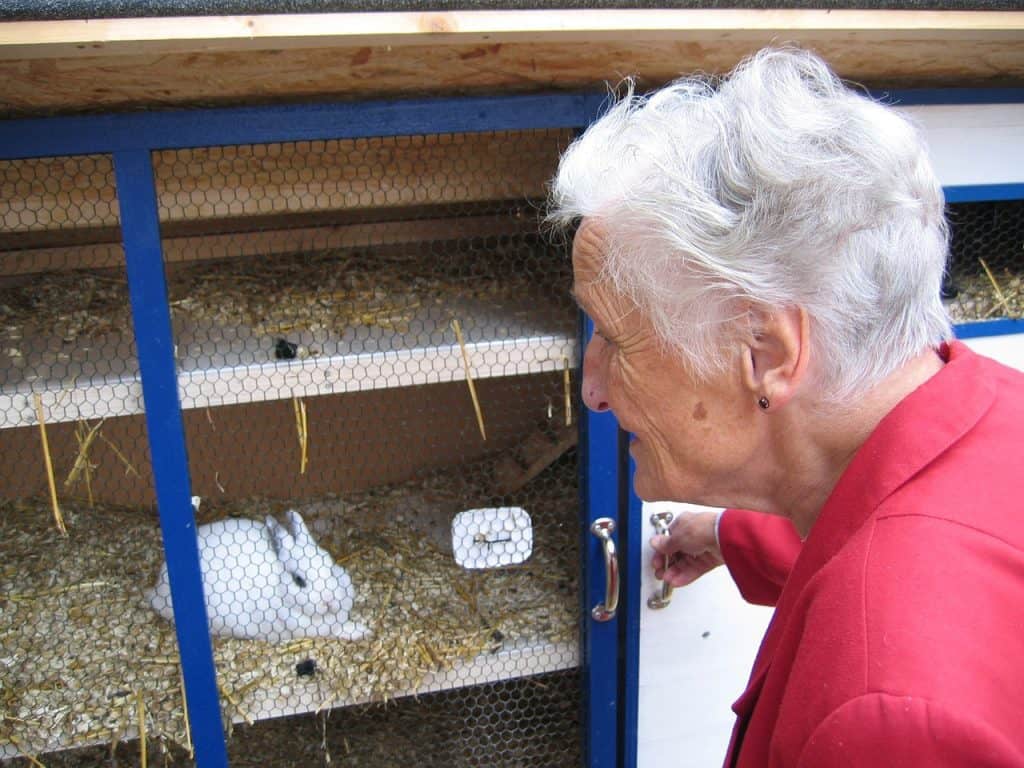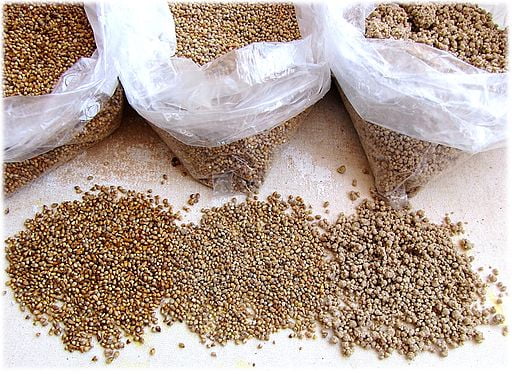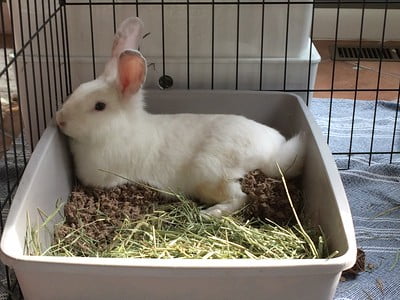Last Updated on March 3, 2023 by Marjon Ramos
Rabbits help the ecosystem by enriching the soil using their poop and urine, providing a food source for various animals, helping to keep invasive vegetation under control, and helping to maintain plant diversity by spreading seeds to other locations.
When it comes to humans, rabbits are important because they are great pets, sources of meat, and models for scientists to use in experiments. They also help support our mental and physical health.
Now that I’ve given you the gist of the article, read on as I explain in more detail why rabbits are important to the environment:
Table of Contents
Reasons why rabbits are important to the ecosystem
Even though rabbits are seen as pests in some parts of the world, they still play an important role in our environment.
Here are the most common reasons why rabbits are important to our environment:
1. Rabbits’ poop and pee enrich the soil.
Rabbits’ poop and pee are great fertilizers of soil.
In fact, rabbit manure contains four times the amount of nutrients compared to cow or horse manure and twice the nutrients compared to chicken.
Rabbits also produce a lot of poop pellets and urine per day.
An average rabbit would produce 200–300 poop pellets per day and 120–130 ml/kg of urine per day.
Multiply that to the millions of rabbits in the wild.
In fact, according to this study, rabbits are invaluable to the Western Mediterranean basin when it comes to soil fertility and plant growth.
The study suggests that a declining rabbit population would have serious ecological consequences because it would lead to a potential negative cascading effect.
2. Rabbits are prey species.
Rabbits are important food sources for various predator animals like:
- Foxes
- Coyotes
- Great horned owls
- Barred owls
- Red-tailed hawks
- Copperhead snakes
- Crows
- Weasels
- Bobcats
- Minks
- Humans
Without rabbits, many of these species would not be able to sustain themselves and would go extinct, like the Iberian Lynx and the Spanish Imperial Eagle.
Rabbit meat is also a great option for humans to consume as an alternative to the typical farm-raised animals.
Rabbit meat is much easier on the environment because it’s faster to raise and requires less space.
3. Rabbits help to keep invasive vegetation under control.
Rabbits’ being grazers helps a lot in keeping wild, invasive plants under control.
Without rabbits, some of these invasive plant species would likely spread like wildfire and would likely lead to less plant diversity.
As an example, New England cottontails help to keep exotic invasive shrubs like autumn olive, multiflora rose, Japanese barberry, buckthorn, and bush honeysuckle at bay.
4. Rabbits help plant diversity.
Because rabbits eat a lot of wild, invasive plants, smaller plants would have a chance to grow because they would get more sunlight and nutrients.
Rabbits also help in spreading plant seeds when they move from one plant to the next.
Some plant species’ seeds can also be spread when a rabbit eats them and poos them in another location.
The importance of rabbits to humans

Rabbits have a long history with humans.
In the old days, rabbits were used by humans as a source of food, clothing, and sometimes as pets.
Here are some of the importance of rabbits to humans in the modern world:
1. Rabbits are great pets.
Contrary to popular belief that rabbits are not great pets because they are snobby, rabbits are in fact quite affectionate once you earn their trust.
Rabbits in the wild are social creatures.
They spend their days with their kind, grooming each other.
The same can be said when rabbits trust their owner and consider them family.
They become affectionate and form strong bonds with their owners.
Rabbits are also quiet pets.
Unlike dogs or cats, where your neighbors would likely get annoyed by all that noise, having a rabbit would keep both you and your neighbors happy.
2. Rabbits are a great source of meat.
Rabbits are also a great source of meat.
Compared to other meats like chicken, pork, beef, lamb, veal, and turkey, rabbit meat has more protein per serving, the lowest fat, and the lowest calories per serving.
It’s also more environmentally friendly to consume rabbits due to how fast it is to raise one for meat consumption and how little space it needs.
3. Rabbits help in supporting our mental and physical health.
Pets like rabbits are great at boosting our mental and physical health in many ways, including:
- Increase your physical activity whenever you spend time with your rabbit.
- Rabbits can ease anxiety by providing companionship.
- Several studies suggest that pets can reduce the chances of developing allergies and eczema.
- Pets like rabbits can also lower blood pressure by lowering stress levels.
- It gives structure to your life. Feeding your pets and taking care of them in general helps to keep a daily routine. Our daily routine keeps us grounded and focused.
- It keeps us connected to other people. Pet owners are more likely to join communities that would help them take better care of their pets.
4. Rabbits are great models for scientists to use for experiments.
Scientists have been using rabbits as models for human diseases and other experiments for a long time.
Rabbits have helped in the development of vaccines and other therapeutics that have saved millions of human lives.
As an example, Louis Pasteur used rabbits as models in developing the rabies vaccine in 1881.
And today, scientists have been using rabbits to develop vaccines for all kinds of diseases, like HSV-1 virus infection and HIV-AIDS.




